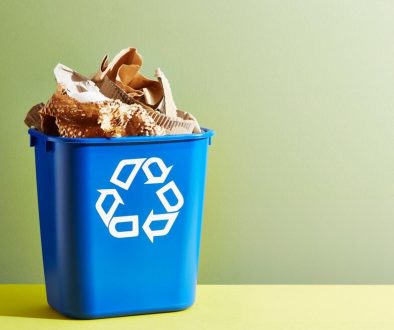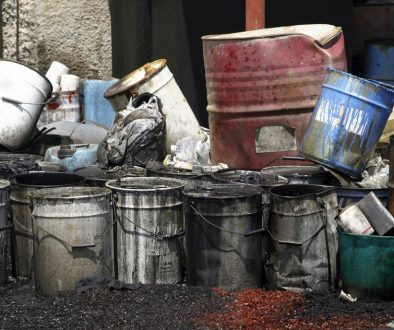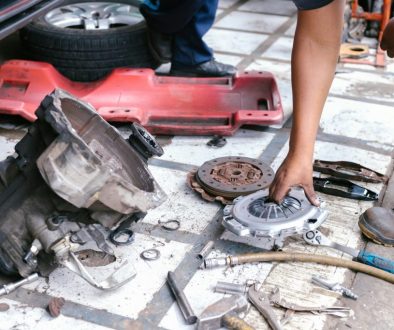As awareness of our impact on the environment grows, sustainable practices are becoming increasingly important across various industries, including landscaping. As a family-run skip hire and aggregate company servicing Staffordshire, we believe in the power of recycled aggregates as a sustainable alternative to traditional materials, transforming not only the appearance of gardens and outdoor spaces but also contributing to a healthier planet.
Recycled aggregates, such as crushed concrete, brick, and glass cullet, are generated from various waste sources like construction sites and demolished structures. Through a process of collection, sorting, and processing, these waste materials are transformed into useful aggregates, ready for incorporation into new landscaping projects. By choosing to use recycled aggregates in your garden, you can contribute to the reduction of waste, conservation of natural resources, and promotion of eco-friendly landscaping practices.
In this article, we will explore the various types of recycled aggregates and their applications in landscaping projects. We will discuss the environmental and practical benefits of incorporating recycled materials into your garden design, as well as the role of waste management companies in providing sustainable landscaping solutions. Our aim is to equip you with the knowledge and inspiration to incorporate recycled aggregates into your outdoor spaces, adopting more sustainable practices for the future of our planet.
Sustainable Landscaping: Using Recycled Aggregates for Eco-Friendly Garden Transformation
1. Types of Recycled Aggregates and Their Applications in Landscaping
Recycled aggregates come in various forms, each suitable for different landscaping applications:
- Crushed concrete: Produced from demolished concrete structures, this aggregate is ideal for creating pathways, driveways, and as a stable base for paving stones.
- Recycled brick: Sourced from demolished brick buildings, this material can be used to create decorative borders, garden pathways, or as a sustainable filler for raised garden beds.
- Glass cullet: Crushed and repurposed glass products can be used as a decorative element in landscaping, providing striking visuals while contributing to resource conservation.
2. Environmental Benefits of Using Recycled Aggregates in Landscaping
Opting for recycled aggregates in your landscaping projects can help reduce your environmental impact in several ways:
- Waste reduction: Utilising recycled aggregates diverts waste materials from landfills, making it an essential part of a circular economy model in waste management.
- Resource conservation: Incorporating recycled materials in your landscaping projects helps conserve natural resources, reducing the need for excavation and extraction of virgin aggregates.
- Reduced carbon footprint: Repurposing waste materials as recycled aggregates requires less energy and generates fewer emissions than producing new aggregates.
3. Practical Advantages of Recycled Aggregates in Garden Design
Besides their environmental benefits, recycled aggregates also offer practical advantages for your landscaping projects:
- Cost-effective solution: Recycled aggregates are often more affordable than their traditional counterparts, reducing the overall cost of your landscaping project.
- Improved drainage: Certain types of recycled aggregates, such as crushed concrete, provide excellent drainage capabilities, making them suitable for areas prone to waterlogging.
- Versatility: Recycled aggregates can be used in various applications, from creating functional pathways to adding decorative touches to your garden design.
4. Collaborating with Waste Management Companies for Sustainable Landscape Solutions
Waste management companies play a vital role in providing sustainable landscaping solutions, such as supplying high-quality recycled aggregates:
- Expert knowledge: Engaging with a waste management company gives you access to their expertise, offering advice on selecting and effectively using recycled aggregates in your landscaping projects.
- Quality assurance: Partnering with a reputable waste management company ensures that the recycled aggregates you use in your gardening projects meet industry standards for safety and environmental compliance.
- Convenient services: Waste management companies, like ours, often provide skips and collection services tailored to your project needs, streamlining the process of disposing of waste materials and sourcing recycled aggregates.
5. Tips for Designing Sustainable Gardens with Recycled Aggregates
Here are some tips to help you create a sustainable garden design using recycled aggregates:
- Plan your space: Carefully plan your garden layout, determining where recycled aggregates can be best utilised, from pathways to decorative features.
- Experiment with colours and textures: Recycled aggregates come in various colours and textures, allowing you to create unique and visually appealing garden spaces.
- Combine recycled aggregates with sustainable planting: Pair your sustainable aggregate usage with eco-friendly planting practices, such as choosing native plants and incorporating drought-resistant species.
Conclusion
Sustainable landscaping using recycled aggregates is not only a practical and cost-effective solution for your garden projects but also a valuable contribution to protecting our environment. Embracing eco-friendly landscaping practices and engaging with waste management companies, like ourselves, can ensure that your garden transformation not only enhances your outdoor space but also promotes a healthier planet.
If you are interested in learning more about using recycled 6f2 aggregates in your garden or would like to discuss our range of services, please contact Enviro Skip Hire today. Together, we can create beautiful gardens while fostering a sustainable future for the generations to come.




